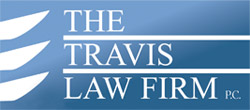
Pennsylvania’s Limited Tort Laws

Every state, including Pennsylvania, requires drivers to carry minimum insurance requirements. In Pennsylvania, drivers must carry the following insurance to operate a motor vehicle legally:
- Bodily Injury Liability insurance coverage in the amount of $1,5000 per person and $30,000 per accident
- Property Damage Liability coverage in the amount of $5,000
- Medical Expenses (PIP) coverage in the amount of $5,000
Liability insurance pays compensation to other people when you cause a car accident. Medical expense coverage pays your medical bills up to the policy amount, regardless of who is at fault for the crash.
You can choose to purchase higher amounts of coverage and additional types of coverage. For example, collision, comprehensive, uninsured, and underinsured coverage is not required in Pennsylvania, but these coverages are available as options for an addition premium.
Limited and Full Tort Laws in Pennsylvania
When you purchase your insurance coverage, you will be asked to choose between limited tort insurance coverage and full tort insurance coverage. There are key differences between the coverage that you should understand before making your decision.
With a full tort insurance policy, you retain your right to sue third parties (i.e. other drivers, mechanics, automobile manufacturers, government entities, etc.) who caused the car accident. Your legal right to seek compensation for damages is not restricted. Therefore, you can file a claim and a lawsuit to recover compensation for your:
- Medical expenses
- Lost wages
- Property damage
- Disfigurement, scarring, and permanent disability
- Physical pain
- Mental anguish and emotional suffering
- Other out-of-pocket expenses related to your injury and recovery
Full tort insurance policies provide you with more legal options for receiving compensation for your injuries. However, these insurance policies cost more than limited tort insurance policies.
Limited tort insurance policies, also referred to as limitation on lawsuit policies, restrict your ability to file a lawsuit or claim against a third party for damages. While you can file a claim or lawsuit to recover compensation for your financial or out-of-pocket damages, you cannot file a claim or lawsuit for your non-economic damages (i.e. pain and suffering damages). A limited tort insurance policy will cost you less to purchase, but you could lose a substantial amount of money if you are injured in a car accident caused by another driver or party.
Exceptions to Limited Tort Insurance Policies
There are a few exceptions to the restrictions of limited tort insurance policies. If you fall within one of these exceptions, the law allows you to sue for pain and suffering damages even though you choose a limited tort policy.
The exceptions are:
- An uninsured driver caused your accident;
- Your accident was caused by a drunk driver who was convicted of DUI or accepted an ARD (Accelerated Rehabilitative Disposition)
- The driver was not licensed in Pennsylvania
- The accident was intentional
- You were a pedestrian, bicyclist, motorcyclists, or occupant of a commercial motor vehicle (i.e. tax, bus, commercial truck, etc.)
- You suffered a “serious impairment to a significant bodily function”
The exemption for a serious impairment can be the most difficult exemption to prove. It is not automatic like the other exception, and there are not strict guidelines as to what constitutes a “serious impairment” or “significant bodily function.” Because filing a claim or lawsuit under a limited tort exception can be a difficult and complex undertaking, it is best to consult with an experienced Erie car accident attorney.
Call for Your Free Appointment with an Erie Car Accident Attorney
Contact The Travis Law Firm toll-free at (800) 401-2066 to schedule a free legal consultation with one of our Erie car accident attorneys.
